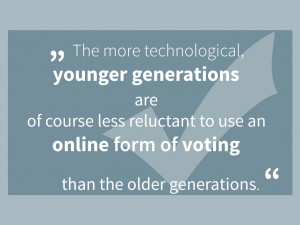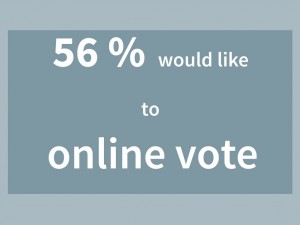By Olly Tozer
The British Labour Party has just elected the socialist Jeremy Corbyn to be their new leader, and Tom Watson his deputy, in an election that used the greatest amount of online votes in British history.
According to Electoral Reform Services, of the 422,871 voters who took part in the election, 343.995 of them sent in their votes online. This accounts for a whopping 81% of the voters.
Why young voters helped Jeremy Corbyn succeed
A key reason for the increase of online voting is no doubt due to Corbyn’s substantial following by younger generations. The 66 year-old tapped into the feeling of resentment and disillusionment that many young people feel towards politics in the UK.
As a result, the amount of new Labour Party members surged prior to the election. Many of these people joined specifically to vote for Corbyn, and many of them were young people
The more technological, younger generations are of course less reluctant to use an online form of voting than the older generations.Thus, it would seem unlikely that the Conservative party (which receives the bulk of its support from older generations) would conduct such a large chunk of its internal elections online.
Other Parties alarmed by online voting
Nevertheless, the recent developments within the Labour party have well illustrated the inevitable movement towards online democracy. A recent Webroots Democracy/Yougov poll showed that 59% of Londoners (including 70% of those aged 25-39) would support the inclusion of online voting in the 2016 Mayoral elections.
Moreover, the Conservative’s have joined the Green’s and the Liberal Democrat’s in announcing that they will use online voting to help select their candidate for London Mayor.
Another Webroots Democracy/Yougov poll has showed that 56% of the UK would like to have an online voting option in the promised in/out EU referendum. These statistics all support the increasingly vocal calls for elections to become more digitalized.
Rumours are wrong and the numbers are promising
Voter turnouts in UK general elections has been steadily increasing in the last 15 years or so. In 2001, 59.4% turned out, in 2005 it was 61.4%, in 2010 65.1% of the electorate voted, and just last year 66.1% of people voted in the general election.
This suggests that people aren’t as politically apathetic as one would believe. Add to this the will of the population to move towards a more technological method of voting and surely turnouts will only increase hereafter.
At least, if the Labour Leadership contest is anything to measure by, more young people and more online voting means higher voter turnouts and stronger mandates.
Image: flickr/Garry Knight (CC-by 2.0) / Graphics by POLYAS GmbH
About the Guest-Blogger
Olly Tozer usually blogs on NOTA , a blog focussing on UK politics and with the aim to enhance political debates with a fresh perspective. For the latest, follow NOTA @NOTA_Network

